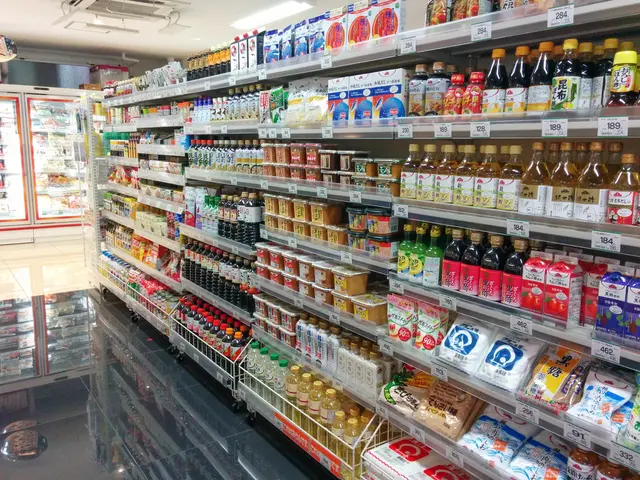Enhancing Visitor Engagement in the Tourism Sector
Shaking up Ghana's tourism industry post-pandemic:
The coronavirus pandemic has left a significant mark on Ghana's tourism sector, leading to a steep decrease in visitor numbers. With around 39,000 tourists from the USA in 2020, the number paled in comparison to the annual average of 900,000 pre-pandemic. However, there are promising signs of recovery, and the opportunity to establish Ghana as a top travel destination lies in enhancing the customer experience.
To remain competitive in a market that's becoming increasingly saturated, it's crucial to adopt a customer-centric strategy and create an environment that sets Ghanaian tourism businesses apart from the crowd. This focus on improving customer experience will revolutionize the industry and make it a key driver of economic growth.
In the past, working for a Belgian tour operator gave me valuable insights into what travelers truly value when holidaying. European and American tourists often travel on a budget and are more inclined towards lower-priced accommodations. Simple expectations of this clientele include clean rooms, functioning facilities, and basic maintenance. But, the key to success lies in delivering an exceptional customer experience that sets your brand apart from the competition, making it the go-to choice for visitors.
Here are some strategies to help you take the lead in customer-centric hospitality:
Deliberate Customer Experience Strategy
In the wake of the pandemic, Ghana's tourism industry is eager to rebound, with the 'Beyond the Year of Return' initiative being the focal point. To truly distinguish oneself from the competition, prioritizing customer experience and enhancing hospitality services is vital. Many experts agree that a customer-centric approach gives businesses an unmatched competitive edge.
For instance, Iberia, the Spanish commercial airline, took proactive steps to improve customer satisfaction by developing an interactive map on their website to provide potential customers with easy-to-understand information about travel requirements during the pandemic. This kind of forward-thinking addresses customer concerns and sets a strong example for the industry.
Personalized Experiences
Today's world thrives on technology, and personalization is the new norm for driving competitiveness. By tailoring services to meet the unique needs, preferences, and priorities of your customers, you increase satisfaction and solidify their loyalty. Customer Relationship Management (CRM) software can help gather and analyze customer data to ensure you deliver targeted experiences.
Utilizing a CRM for travel agencies, for instance, can help inch you closer to personalization. By understanding past customer preferences, you can offer tailored tour packages that meet their interests. It's essential to collect accurate feedback from customers so you can adapt and improve every step of their journey. And remember, bespoke solutions can be developed for reasonable prices by local software developers, making it easy for small and medium-sized businesses to get on board.
Listen to Your Customers
The voices of your customers hold the key to success. Many travelers feel their feedback is disregarded, leading to frustration and a decreased desire to interact with businesses. Make sure you take their feedback seriously, acknowledge it, and make meaningful changes based on the information they provide. By responding swiftly and positively to their feedback, you build trust and strengthen your relationship.
Embrace Technology
There's no denying that technology is transforming the travel industry, making transactions more efficient, accessible, and personalized. From using AI for customer service to leveraging mobile apps for bookings, technology is crucial for staying ahead in the game. By adopting cutting-edge tech solutions, hospitality businesses can improve their capabilities, streamline operations, and enhance customer satisfaction.
Empower Your Employees
Your employees are the face of your brand, so invest in them to build a strong, customer-centric team. Continually educate them to keep them up-to-date on the latest trends, industry best practices, and customer preferences. Provide opportunities for feedback so you can learn and evolve together.
Unlock the true potential of your team by creating a culture that encourages continuous learning, collaboration, and innovation. In a dynamic industry like tourism, adaptability is essential for success. By empowering your employees, you foster an agile and responsive organization that can surf the ever-changing waves of the market with ease.
Remember Your Why
At the heart of any successful customer-centric strategy lies a deep understanding of your purpose and mission. Always be mindful of the impact you aim to create in the lives of your customers, and strive to deliver an experience that goes beyond their expectations. Build a customer-obsessed culture that thrives on innovation and personal connection, one that is truly dedicated to enriching the lives of each and every visitor who steps through your door.
With these strategies in place, Ghana's tourism industry can flourish in the post-pandemic era, setting the stage for economic growth and prosperity. By embracing customer-centricity, businesses can forge a deeper connection with their customers, fostering loyalty, trust, and repeat business, all while elevating Ghana's reputation as a premier travel destination.
The Writer is a Change and CX Management Consultant. He can be reached at 059 175 7205, [email protected],
https://www.linkedin.com/km-13b85717
- The coronavirus pandemic's impact on Ghana's tourism sector necessitates a shift towards a customer-centric strategy to enhance customer experience and stay competitive, fostering economic growth.
- Adopting technology, such as AI and mobile apps, can help make transactions more efficient, personalized, and accessible in the tourism industry, which is crucial for staying ahead in the market.
- Gathering and analyzing customer data through CRM software can lead to targeted and personalized services, thereby increasing customer satisfaction and loyalty.
- Investing in employee training and education, and creating a culture that encourages continuous learning, collaboration, and innovation, can help to build a strong, customer-centric team to cater to the evolving needs of the market.






